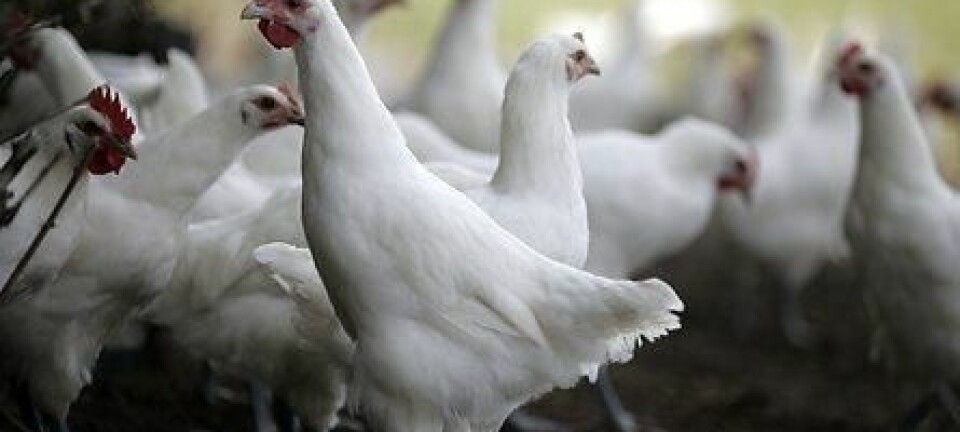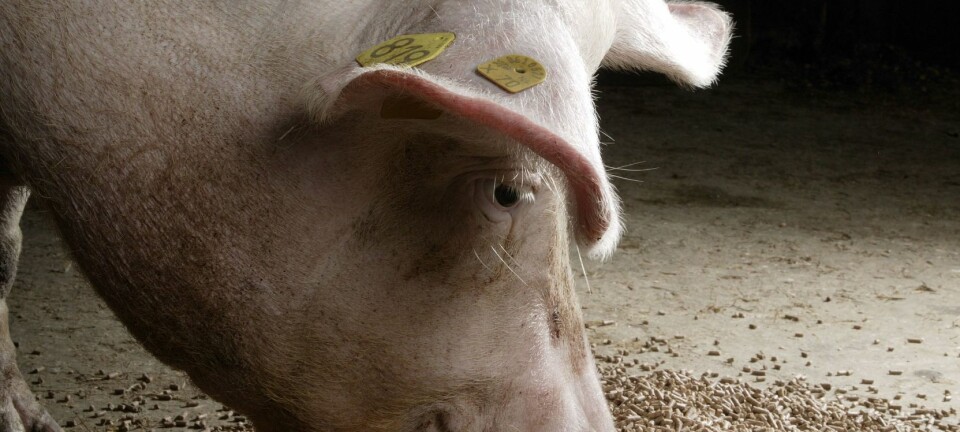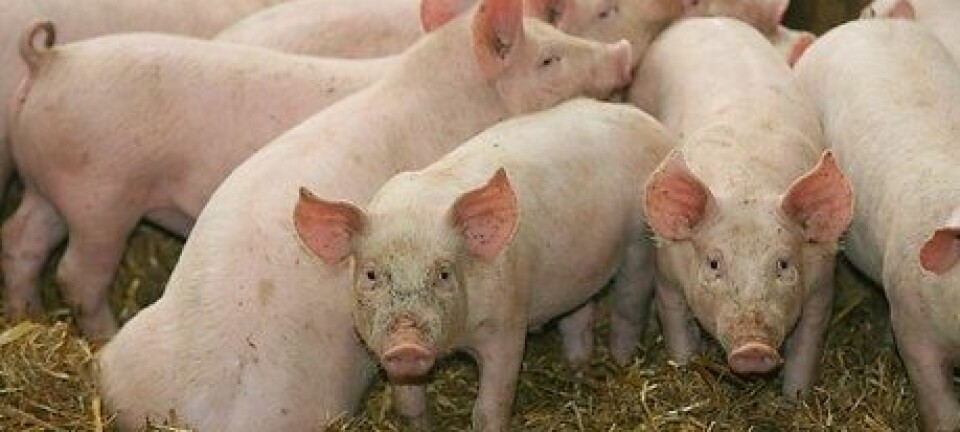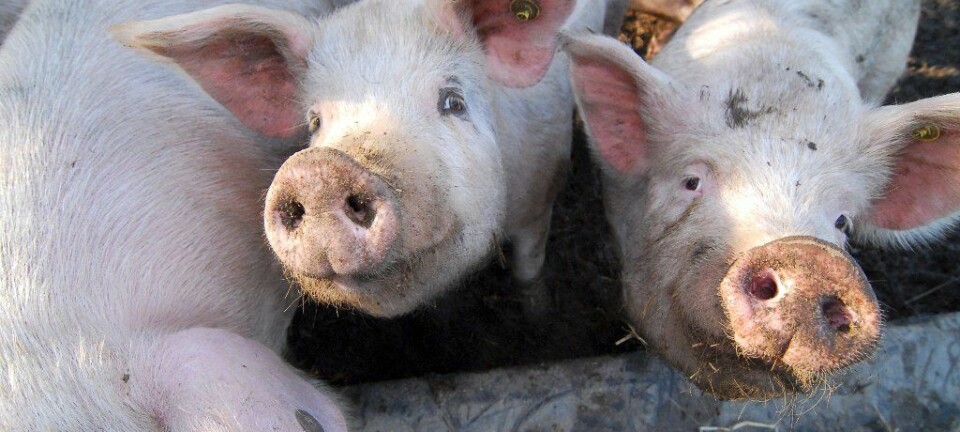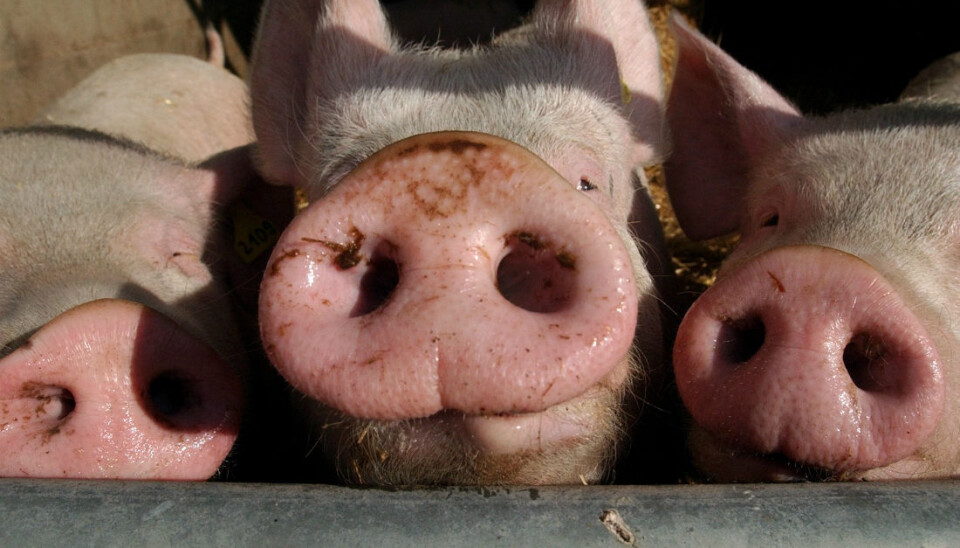
Less Salmonella in outdoor and organic herds
A study surprisingly reveals a lower incidence of Salmonella bacteria in outdoor and organic pig herds than in conventional herds.
The risk of slaughter pigs having Salmonella bacteria in their intestines is lower if they have been raised in an outdoor or organic herd rather than in a conventional herd.
That is the conclusion of a study conducted by the National Food Institute at the Technical University of Denmark (DTU). The reason for the difference is yet to be explained.
Surprising results
"We are rather surprised that the incidence of Salmonella is lower in outdoor and organic herds than in conventional herds. We expected it to be the other way round," says Anne Wingstrand, a senior researcher at the National Food Institute, DTU.
What suggests that the incidence should be higher in outdoor and organic herds is that being outdoors brings them into contact with wild animals and birds that can be infected with Salmonella.
By contrast, conventional herds are always indoors, where cleaning and drying of the housing unit should make it harder for Salmonella to survive.
Seeking the decisive factor
So why is there a lower incidence of Salmonella in outdoor or organic pig herds?
"We don't know, but are trying to find out," says Wingstrand, adding that the results of this study, although not statistically significant, are supported by a study from the Faculty of Agricultural Sciences at Aarhus University.
everal factors which reduce the risk of Salmonella in pig herds are already known:
- Feed which results in low pH and high levels of organic acids in the digestive tract
- Batch operations and cleaning livestock units between each batch
- Avoidance of introducing infected pigs into the herd
- Limiting herd size
But these factors are insufficient to explain the differences seen in the study, so other factors are being considered.
Antibodies from the sow
One factor being examined is how long piglets stay with the sow.
"Sows produce antibodies against Salmonella, and can pass on these antibodies to their offspring via the milk," says the researcher.
"This makes piglets more resistant during suckling, while they slowly build their own immunity as they are weaned from the sow."
But if the piglets are taken away from the sow too early, or moved to a new herd with new bacteria, they may not be as robust in resisting infection.
Awaiting the answer
Further research is needed to find out why there is a lower incidence of Salmonella in outdoor and organic pig herds.
"When we know which factors are responsible, we hope to use the knowledge to prevent and control Salmonella in conventional pig herds, and of course to ensure that the incidence is kept low in outdoor and organic herds," says Wingstrand.
The new research is viewed with an open mind in conventional agriculture circles.
"We continually get ideas from research, and if organic farming can show us how to reduce the incidence of Salmonella, that is something we will look at," says the chairman of the Danish Pig Production Association, Henrik Mortensen.
-------------------------------
Read this article in Danish at videnskab.dk
Translated by: Nigel Mander
Scientific links
- "Risk Factors Associated with Salmonella on Swine Farms"
- "Effect of pig production system and transport on the potential pathogen transfer risk into the food chain from Salmonella shed in pig faeces"
- "Herd-level risk factors for subclinical infection in European finishing-pig herds" Prev. Vet. Med. (2004)
- "Bacteriological and serological examination and risk factor analysis of Salmonella occurrence in sow herds, including risk factors for high Salmonella seroprevalence in receiver finishing herds" Berl. Munch. Tierarztl. Wochenschr. (2001)
